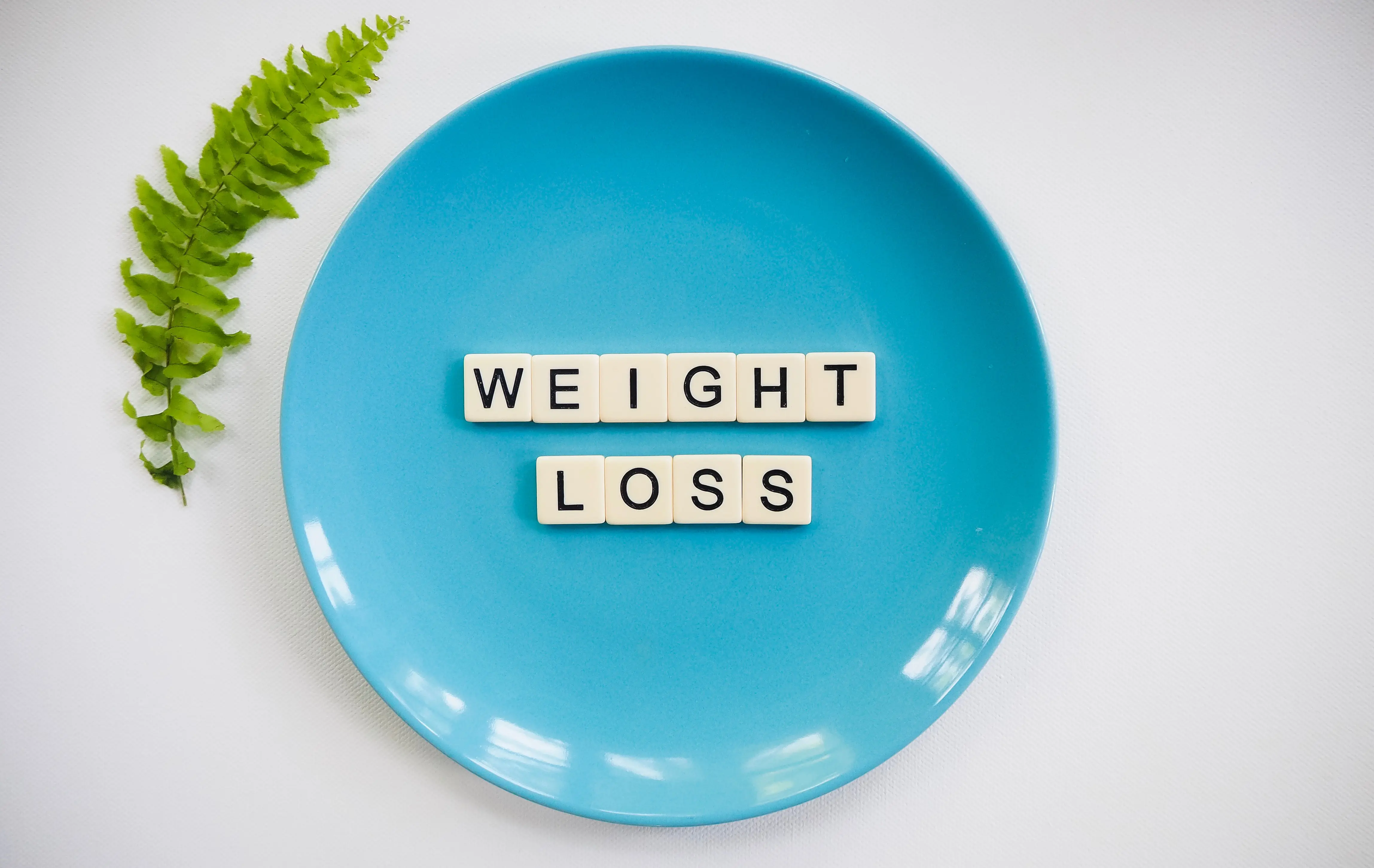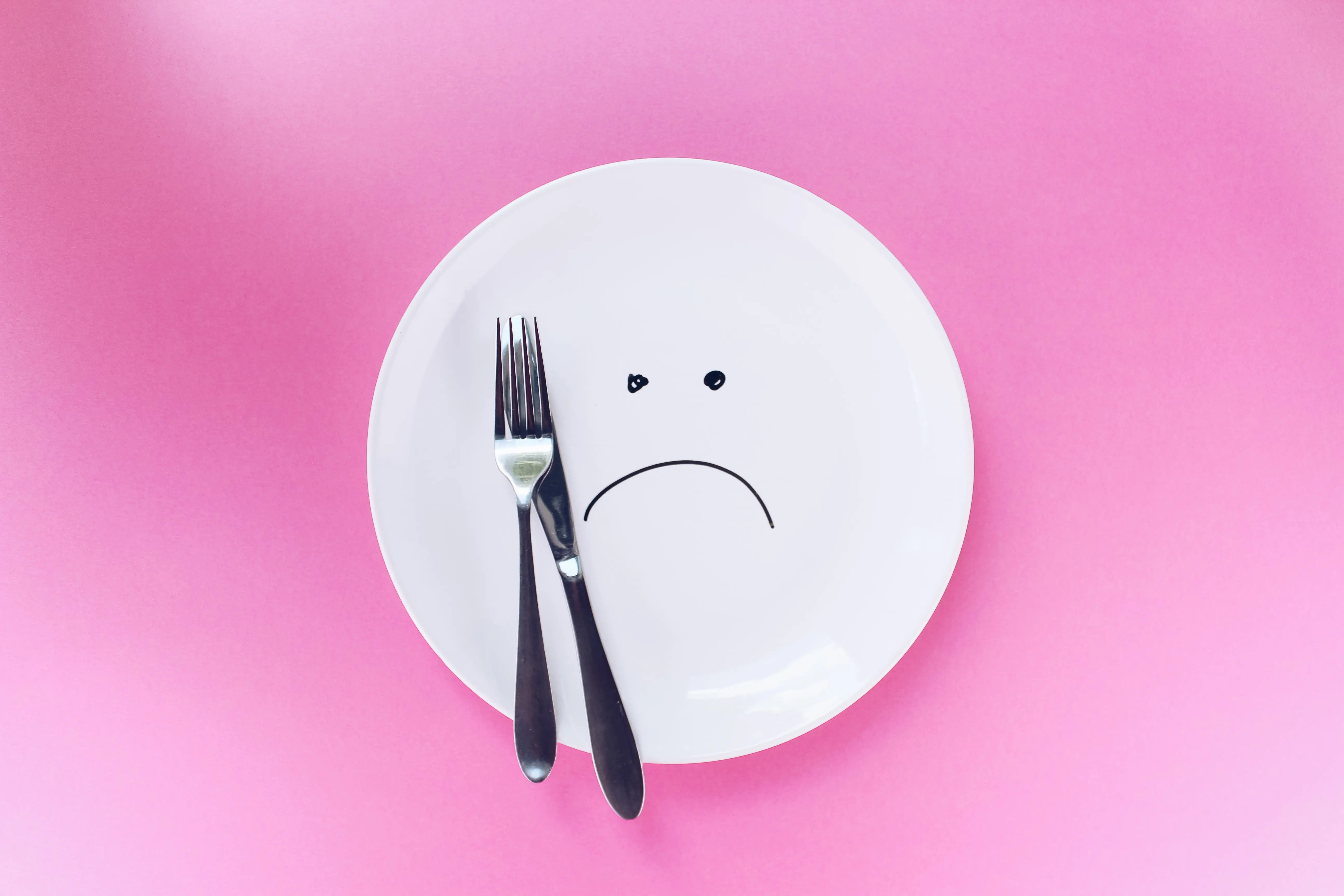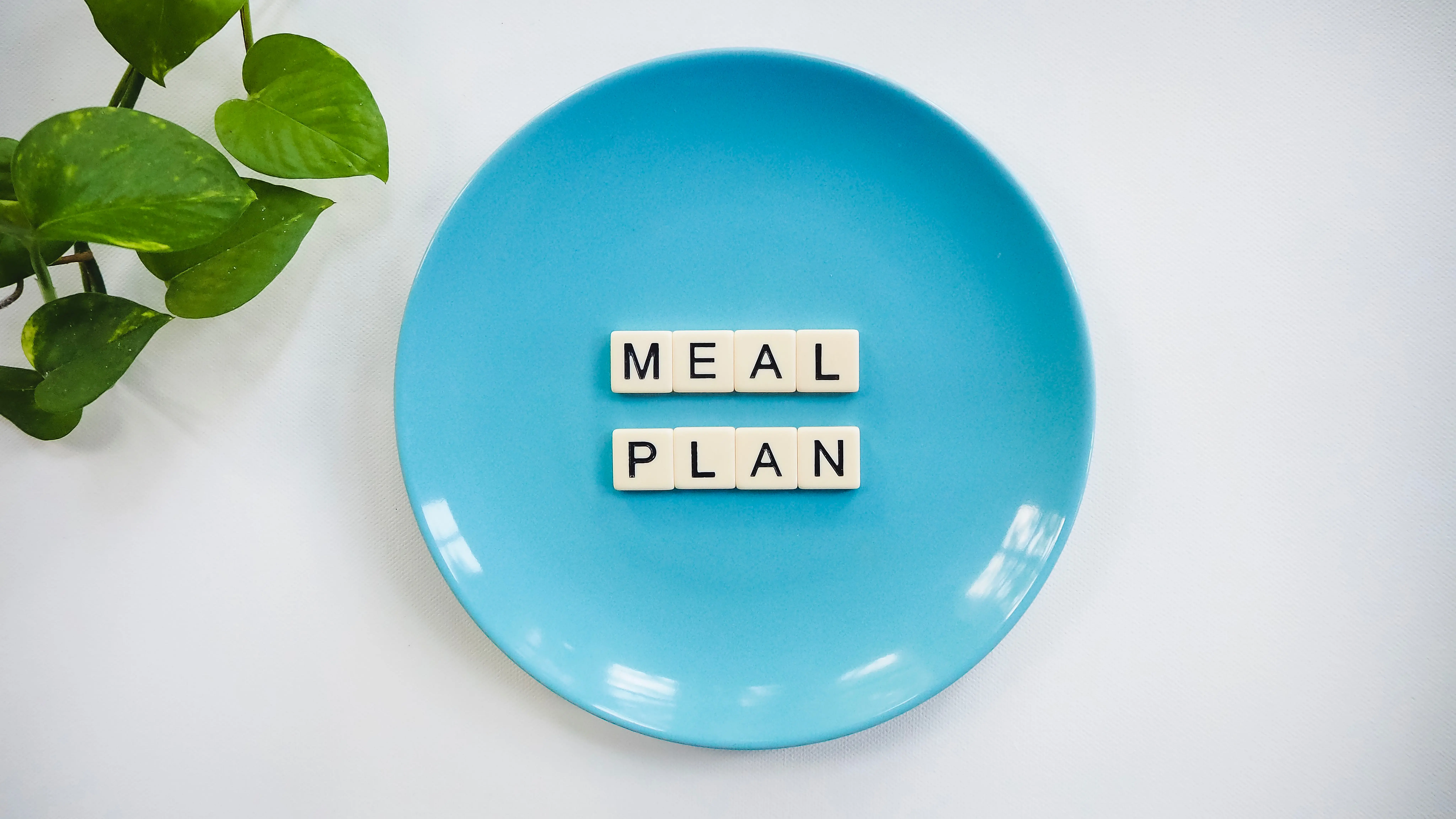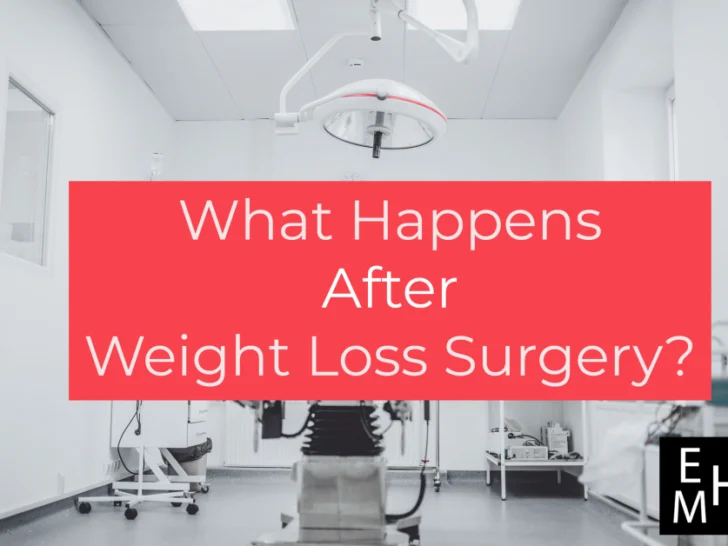Some of the links in this post are affiliate links. This means if you click on the link and purchase the item, we will receive an affiliate commission from the vendor at no extra cost to you. These business relationships allow us to keep bringing you great EatMoveHack content. All opinions remain our own.
Weight loss surgery has the potential to change lives dramatically. Shows like “My 600 lb. Life” is a view into the need and preparation for surgery. But viewers are often left wondering how successful the surgery is and what happens long-term to patients after weight loss surgery. This article looks at what patients can expect after weight loss surgery.
Anyone who’s seen an episode of “My 600 lb Life” can tell you that in order to lose enormous amounts of weight to qualify for weight loss surgery, and then see success after surgery, will have to make substantial life changes. Dr. Nowzaradan is known for putting patients on strict and extreme diets before the surgery and strict diet limitations post-surgery as well.
He also requires other lifestyle changes, such as increased physical activity and frequent psychological counseling as well. For more about Dr. Nowzaradan, check out our articles Dr. Nowzaradan’s Diet Plan – The Complete Guide & Is Dr. Nowzaradan’s 1,200 Calorie Diet Right for Me? He’s also written a book about obesity, “The Scale Does Not Lie, People Do.: Reversing Obesity Now”
And while the show does a great job showing what happens before surgery, viewers are often left wondering what happened after surgery. Let’s talk about what can happen after surgery for those who undergo the knife in order to save them from morbid obesity.
Weight loss surgery is an option for morbidly obese individuals as a drastic way to reduce the amount of food they can eat so that they can rapidly lose weight based on reduced caloric intake. The process to prepare for surgery and the actions patients need to take post-op are significant. Preparing for weight loss surgery often requires significant diet and lifestyle changes. Here, let’s talk about the post-op experience. There are huge changes to a patient’s life from weight loss, how they eat, to emotional impacts. Let’s talk about what happens after weight loss surgery.

Weight Loss
Let’s start with the obvious. How much weight people can expect to lose after surgery? While the amount of weight people can expect to lose will vary from person to person, most folks can expect their most significant weight loss in the first month.
“In the long-term, people can lose up to 60% of their excess body weight. (9)” With any weight loss program, the amount of weight and the time it takes to lose the weight depend on the choices and specific health needs of the individual patient.
The actual weight a patient will lose after the procedure depends on several factors. (10)
- Age
- Weight before surgery
- Overall condition of health
- Specific surgical procedure
- Ability to exercise
- Commitment to maintaining dietary guidelines and other follow-up care
- Motivation and cooperation of family, friends, and associates
While the type of weight loss surgery can affect results, patients normally lose the majority of the target weight in 18-25 months. (10)
Nutritional Changes
Because the amount of food a patient can eat post-surgery is significantly reduced, it can be challenging to make sure all of their nutritional needs are met with food alone. To ensure that patients get all the required nutrition, supplements are strongly recommended. While the needs of all patients are different, the following supplements are good examples of what most patients can expect to take daily.
Iron
Symptoms of iron deficiency can be extremely varied but can include dizziness, headache, lightheadedness, weakness, and extreme fatigue (2).
Supplements like Nature Made Iron are easy ways to get a reliable amount of iron into a diet. Get it HERE
B-12
“Left untreated, a vitamin B-12 deficiency can lead to anemia, fatigue, muscle weakness, intestinal problems, nerve damage, and mood disturbances. (3)” In short, B-12 deficiency can be serious at worst and unpleasant at best.
B-12 supplements are an easy way to add more B-12 into your diet. You can also find B-12 in other forms, including drops. Work with your doctor for dosage and options. You can also find supplements like this one from Nature’s Bounty on Amazon. Get it HERE
Calcium
We’re all familiar with the “Got Milk” milk campaigns of the ’90s. They were effective not only because so many famous faces wore white mustaches well, but because the value of adding calcium to a diet was clear.
Being deficient in calcium is commonly known to cause bone, teeth, and nail issues. But it can also cause or contribute to extreme fatigue, depression, muscle problems, and even increased PMS issues. (4) So it’s not great.
Calcium supplements are easy to find and take, making adding them into your diet effortless. Check out these tablets from Nature’s Bounty on Amazon. Get them HERE
Vitamin D
There are many reasons why a person could struggle to get enough vitamin D and those suffering from a deficiency can expect to feel fatigued, have bone pain, muscle weakness, muscle aches, or have cramps. They could also experience mood changes such as depression. (5)
But over-indexing on vitamin D comes with its own set of issues. It’s so important to work with your doctor to screen for your current levels and any need to supplement them.
If you and your doctor find you could benefit from supplements, Now makes a popular supplement that’s easily found on Amazon. Get it HERE
Multivitamin
For a solid catchall, a good multivitamin is also recommended. Most find it easy to tolerate and cover the most important needs. From gummies to horse pill-sized, you can find a million different multivitamin options.
365 Adult Everyday is a popular choice on Amazon if you’re looking for a popular option. Get it HERE
Of course, it’s important for anyone who wants to ensure they’re getting the right balance of nutrition to work with their doctors to screen for what they may or may not need additional supplements for. Especially those whose needs may be different than others or different than they’ve been in the past, as patients of surgical weight loss.

Emotional Changes
In “My 600 lb Life” there are many examples of the emotional challenges a patient faces during the process of losing weight. And it’s easy to understand where those issues come from.
Food relationships are often closely tied to personal relationships and identity. Sharing meals is a way to bond. Passing down recipes is a way to initiate each other into shared culture and history. Preparing food for others, and receiving from those who give food, is viewed as personal and meaningful generosity. We eat and share food with each other to demonstrate trust and gratitude. For many, food is love.

Sharing meals with other people has a social and emotional impact
When we step away from heirloom food and say no thank you to gifts of food or sharing of food, we challenge deep social and cultural relationships based on food. But those changes are normally required to successfully lose extreme amounts of weight.
Food also serves as a crutch for avoiding feelings for many. It’s also a distraction, even an avoidance of boredom, frustration, sadness, and a litany of other emotions. Disallowing food to block those feelings, means for many, they’ll feel them for the first time, or the first time in a long time.
In short, changing how we eat can open up a minefield of feelings, interactions, and conflicts that challenge and upset us. But support can mitigate and manage the emotional issues and help ensure success.
For many patients, being informed about the emotional impact of losing weight means they can address it head-on and prepare by participating in support groups and/or counseling. (6)

Eating
Obviously, a surgery designed to disrupt the ability to eat means that how patients eat after will be dramatically different. The changes don’t just include what’s on a patient’s plate, but how they actually eat food.
For the first 30 days after surgery patients are limited to a liquid diet to allow the body to heal. (9) That first month also results in significant weight loss. Patients can lose 5-15 pounds a week. Men generally lose weight more rapidly than women. (9)
After the first month, they begin by gradually introducing more solid foods into their diets. The process is slow and the patient will re-learn their body’s new digestive process. (9)
After the first 30 days
Because their stomachs are literally tiny compared to their pre-surgery stomachs, the amount they can eat, and their body’s digestion process is changed. From changes in how the body processes gas, to how quickly and effectively it can break down foods like steak and raw vegetables, patients will notice significant changes.
They’re encouraged to choose easy to chew foods such as ground meats. They should also look for high-protein foods to maintain and preserve muscle mass. They should avoid foods that expand in the stomach such as rice and bread. As well as carbonated beverages, as they bring excess gas into the gut. Chewing gum or ice can also introduce gas into the gut and should be avoided. They should also chew food well before swallowing, making food easier to digest. (7)
Taking breaks while eating is also encouraged to allow the body time to signal satiation. Especially early after surgery, patients are at risk of vomiting, even damaging their stomachs, if they over-consume. (7)
Beverages
They should also make diligent efforts to drink water throughout the day to ensure they remain properly hydrated.
Drinking alcohol is also strongly discouraged as the body’s response to it is significantly changed post-surgery. The patient will be more vulnerable to the effects of alcohol after surgery. In addition, there is no nutritional value in alcohol to help the patient meet their nutritional goals. It only makes getting the right nutrition and hydration more difficult. (8)

Conclusion
While shows like “My 600 lb. Life” has brought a lot of attention to bariatric weight loss surgery, it’s not for everyone. The preparation for the procedure and the lifestyle changes post-surgery require significant work and personal changes. Being a candidate physically for the procedure is only one aspect of a good patient. The emotional impacts and the personal lifestyle changes a patient has to make are also important factors in choosing candidates. Anyone who is considering weight loss surgery should work closely with their healthcare provider as well as a qualified counselor to ensure they are good candidates.
If you’re a fan of “My 600 lb. Life” and want to read more about Dr. Nowzaradan and his approach, check out his book on Amazon, “The Scale Does Not Lie, People do.: Reversing Obesity Now”
And if you’re looking for more articles, recipes, and info, check out these other great articles!
- Dr. Nowzaradan’s Diet Plan – The Complete Guide
- Is Dr. Nowzaradan’s 1,200 Calorie Diet Right for Me?
- How I Lost 65 Pounds in 1 Year
- Intermittent Fasting 2.0
- Intermittent Fasting and Caffeine
- 12 Keto-Friendly Adult Beverages
- Intermittent Fasting and Exercise -The Truth
References:
(2) https://www.mayoclinic.org/diseases-conditions/iron-deficiency-anemia/symptoms-causes/syc-20355034
(3) https://www.mayoclinic.org/drugs-supplements-vitamin-b12/art-20363663
(4) https://www.medicalnewstoday.com/articles/321865#symptoms
(5) https://my.clevelandclinic.org/health/articles/15050-vitamin-d–vitamin-d-deficiency
(6) https://www.upmc.com/services/bariatrics/surgery-process/post-surgery
(7) https://www.ucsfhealth.org/education/life-after-bariatric-surgery
(8) https://asmbs.org/patients/life-after-bariatric-surgery
(10) https://uihc.org/health-topics/how-effective-bariatric-surgery







